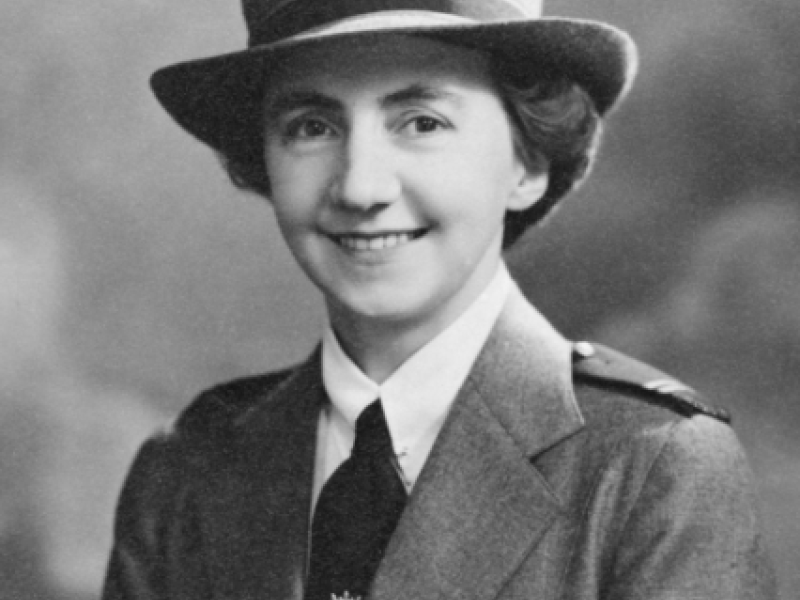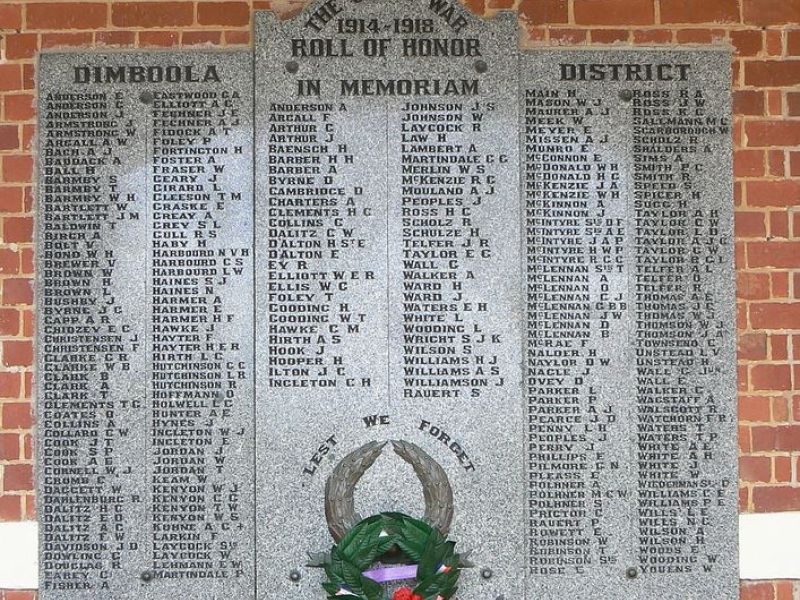She kept alive the flame of hope
Olive Dorothy Paschke was born in Dimboola on the 19th of July 1905 and attended the Dimboola Soldiers Memorial Higher Elementary School, now the Dimboola Memorial Secondary College.
Paschke commenced her nursing training in 1930, at the Queen Victoria Memorial Hospital for Women and Children in Melbourne. She gained her nursing certificate in 1934.
She joined the Australian Army Nursing Service in July 1940 as a staff nurse and in January 1941 she was promoted Matron and posted to the 2/10th Australian General Hospital (AGH). In February the unit was sent to Singapore and then Malaya. Paschke was popular with her staff, patients and medical officers. She led by example, often working long hours beside her nurses. In November 1941 she was promoted to Principal Matron, Malaya.
After the Imperial Japanese invasion of Malaya on the 8th of December 1941, the 2/10th AGH moved back to Singapore. There Paschke had an abandoned school converted into a hospital.
Eventually the hospital too came under air attack but Paschke showed that she was prepared for any sacrifice, including lying beside a helpless soldier during an air attack to protect him with her body.
For her distinguished service during this period she was awarded the Royal Red Cross, considered by some to be nursing’s most coveted honour.
By the end of January 1942, Singapore was cut off. On the 12th of February the last 65 Australian nurses in Singapore were evacuated aboard the SS Vyner Brooke. The vessel also carried about three hundred passengers, mostly women and children.
Two days after it had departed, the Vyner Brooke was attacked by Japanese aircraft and quickly sank in Banka Strait, Netherlands East Indies. Although she could not swim, after ensuring that those around her abandoned ship without panic, Paschke jumped overboard.
She was helped into a life-raft in which there were already seven nurses and some civilians. Strong currents prevented them from reaching Banka Island but Paschke remained cheerful and her encouraging words and calm demeanour inspired all on the raft. In a desperate situation she kept alive the flame of hope.
Eventually, in a desperate attempt to lighten the raft, two nurses and two Malay sailors slid into the sea and swam beside it. Some progress was made toward the shore but the currents again drove the raft seaward and away from the hands of those in the water. Matron Paschke, five other nurses and two small children were last seen drifting out to sea.
One of the nurses who had entered the water, Betty Jeffrey, survived the war and gave an account of the brave Matron’s final hours. Paschke was posthumously awarded the Florence Nightingale medal.
In 1949, a sundial was placed in the grounds of her former school to commemorate Dorothy Paschke. Each year for Anzac Day, a pupil tells an assembly of students the story of Paschke's life.
Sources:
http://adb.anu.edu.au/biography/paschke-olive-dorothy-11347
Australian War Memorial
Dimboola Memorial Secondary College: http://www.dmsc.vic.edu.au/matronpaschke
The Horsham Times 20th January 1942 – via Trove

 Henry C Moulds
Henry C Moulds